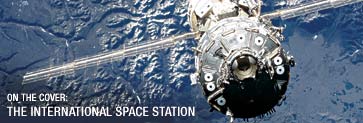
By Todd Post
Stories in ASK Magazine demonstrate that career development is rarely something successful project managers consider just a phase of their career.
In a mature view of the subject, career development is not simply four years of college or a week at training, culminating in a diploma or a certificate to hang on an office wall. That’s why we wanted to take a broad look at career development in this issue of ASK. Take for example, Dr. Gerald Mulenburg’s contribution, “Fly on the Wall.” When Mulenburg and other members of a knowledge-sharing group at Ames were invited to observe an upcoming project review, Mulenburg thought it would be interesting to learn how another project does its reviews.
Note that Mulenburg is no “fresh out” who’s never attended a NASA project review. Not only has he been through a fair share of them as the reviewed, he has also been on the other side of the table as a reviewer. This experienced project manager recognizes that at any stage of a career there is room to grow and develop one’s repertoire.
Too often people associate career development with textbooks and rote classroom training, far removed from project life. But classroom training need not be like this, as you’ll find in our Special Feature, “The Enterprise Project” by Wendy Dolci, which sprung out of an APPL Advanced Project Management class in July 2003 at Ames Research Center.
In addition to Dolci, some of her classmates contribute to the story. Mike Sander of the Jet Propulsion Laboratory, project manager for the Mars Science Laboratory mission, who provided the assignment on which the story is based, also has a cameo in the story. We think Dolci’s story is an inspiring example of what classroom training can be if it’s approached imaginatively and made to serve a practical purpose. Another story from Ames, by Frank Larsen, takes a different twist on career development. At the annual Experimental Aircraft Association Fly-in in Oshkosh, Wisconsin, Larsen represented Ames at a NASA booth. While there, Larsen met a colleague from Glenn Research Center.
Months later on a project with a quick turnaround, he remembered his colleague from Glenn who had equipment that might help Larsen save time and money on his project. Although they had never worked together and they had to unravel a lot of red tape before they could collaborate, they managed a way to get the job done. That’s the fun part of the story, but we think “Staying on the Lookout” also depicts the unassuming relationship between serendipity and career development.
Much the way it does in Tom Young’s story, “Class Act,” when the opportunity to go back to school coincided with Young’s working for a manager enlightened enough to value the personal development of team members. There are other stories in this issue that deal directly with this theme of career development. Then there are others in which it is less explicit. But if you take the view that career development happens all the time, and is as necessary to your survival as breathing, then you can read almost any story in ASK with your career development in mind. In that case, all the best, and so then — start developing.





